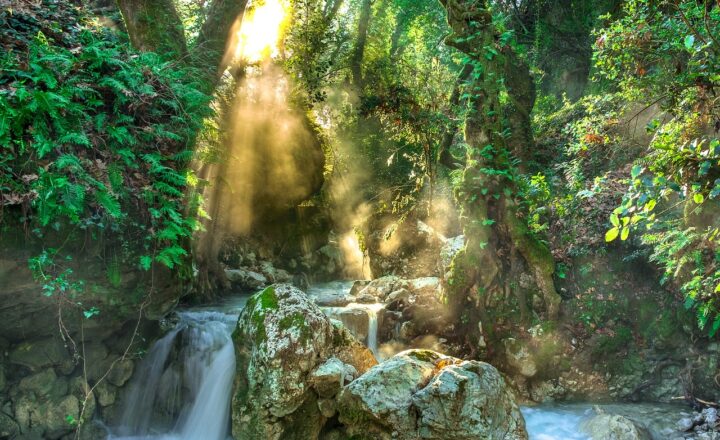Why Certain Rivers Are Worshipped Across Different Religions
November 17, 2024

Throughout history, rivers have been revered by various cultures and religions around the world. They are often seen as sources of life, symbols of fertility, and conduits for spiritual energy. In this article, we will explore why certain rivers are worshipped across different religions, investigating the cultural significance, spiritual beliefs, and historical context that make these waterways sacred.
1. The Universal Symbolism of Rivers
Rivers have been central to human civilization since time immemorial. They provide essential resources such as water for drinking, irrigation for crops, and transportation routes for trade. Beyond their physical attributes, rivers have deeply entrenched symbolic meanings in many cultures.
– **Nourishment and Fertility:** Rivers are often associated with fertility, representing the life-giving properties of water. They are seen as nurturing forces that sustain populations and support agriculture.
– **Life and Death Cycle:** Many cultures view rivers as symbols of the continuous cycle of life and death. Just as a river flows to the sea, symbolizing the return to a greater source, so too does life flow into death, only to be reborn again.
– **Spiritual Pathways:** Forming boundaries, pathways, and transitions, rivers often serve as metaphors for spiritual journeys. They represent the passage from one state of being to another, such as from the material to the spiritual realm.
2. Major Rivers Revered in Different Religions
Many of the world’s major rivers are considered sacred by one or more religions. Here are a few key examples:
The Ganges (Hinduism)
The Ganges River, flowing through India, is perhaps the most venerated river in Hinduism. Hindus believe that the Ganges is the physical embodiment of the goddess Ganga, who purifies the soul and alleviates sins. Ritual bathing in its waters is believed to cleanse one’s mind and body, making it a pilgrimage site for millions who come for spiritual salvation.
– **Cultural Practices:** The river is integral to numerous Hindu rituals, including funerary rites where it is believed that immersing ashes in the Ganges leads to moksha, or liberation from the cycle of rebirth.
The Nile (Ancient Egyptian Religion)
Historically revered by the ancient Egyptians, the Nile River was seen as a divine gift from the gods. Egyptians worshipped the Nile’s annual flooding, which deposited nutrient-rich silt onto the land, crucial for agriculture.
– **Divine Connection:** The river was associated with various deities, such as Hapi, the god of fertility. Its life-giving waters were seen as a direct connection to the divine, underpinning the civilization’s prosperity.
The Yangtze (Chinese Spirituality)
In China, the Yangtze River is steeped in legend and spirituality. It is usually credited with giving life to many ancient civilizations on its banks and is often linked to various deities in Chinese folklore, symbolizing prosperity and culture.
– **Cultural Reverence:** Festivals celebrating the river are common, acknowledging its role in daily life and harvest while showcasing traditional beliefs related to water and nature.
3. Rivers in Other Cultural Contexts
Rivers are not just sacred in major religions. Indigenous cultures around the world often attribute spiritual significance to their local rivers, emphasizing a connection to the land and ancestors.
Amazon River (Indigenous Cultures)
For many indigenous tribes of the Amazon, the Amazon River is considered the lifeblood of their existence. It is viewed as a spiritual being, with its currents representing the flow of life and knowledge.
– **Sacred Practices:** Rituals around the river often include offerings and ceremonies that seek permission from the river spirits before fishing or harvesting.
The Sacred Rivers of Africa (Various African Spiritualities)
Many rivers across Africa, from the Zambezi to the Niger, hold cultural and spiritual significance to various ethnic groups. These rivers are often seen as having the power to heal and protect.
– **Ceremonial Importance:** Ceremonies to honor river deities help to reinforce community ties and cultural heritage.
4. Psychological and Societal Impacts of River Worship
The reverence of rivers significantly impacts societies, reinforcing environmental conservation, enhancing community bonds, and establishing cultural identity.
– **Sense of Community:** River worship helps to create a shared sense of identity and belonging among community members, fostering unity.
– **Environmental Stewardship:** Culturally ingrained reverence can lead to better conservation practices, incentivizing groups to protect their waterways from pollution and degradation.
– **Psychological Benefits:** Spiritual connections to nature, such as river worship, can provide psychological benefits, including stress reduction, grounding, and a sense of purpose among practitioners.
5. Modern Reflections on River Worship
In an age increasingly dominated by technology and urbanization, the veneration of rivers is experiencing a resurgence. Environmental movements seek to restore awareness of these lifelines as sacred and essential.
– **Restoration Projects:** Many organizations advocate for the protection and restoration of sacred rivers, recognizing their cultural significance and the ecological dangers they face, such as pollution and overextraction.
– **Cultural Revival:** Festivals celebrating rivers and promoting their protection are being organized to reintegrate these age-old practices into modern life, encouraging respect for these natural wonders.
Conclusion
Rivers hold significant cultural, spiritual, and ecological importance across the globe. Their worship by diverse religions highlights humanity’s profound connection with nature and the necessity of preserving these vital waterways. As we move forward, understanding their sacredness can inspire future generations toward stewardship of our planet’s most precious resources.
Whether through ritual, folklore, or conservation efforts, rivers continue to be pivotal in fostering spiritual connections and cultural identities. As we explore the rivers revered across different religions, we not only learn about the beliefs of others but also gain deeper insight into our values and place within the larger tapestry of life.
—
By unlocking these traditions, we cherish the river’s role beyond mere survival; we acknowledge its representation of life itself.
—








